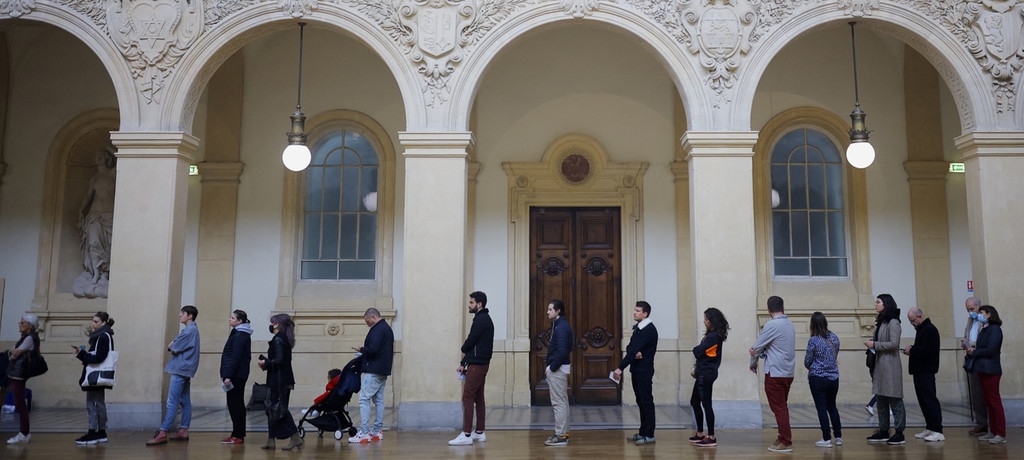After the first round of the presidential election in France took place on the 10th of April, the second and decisive run-off election between the incumbent President Emmanuel Macron (La République En Marche!) and Marine Le Pen (Rassemblement national) was held last Sunday, the 24th of April. Macron emerged victorious from this election.
But even though Macron won against Le Pen (41.46% of the votes cast) with a 58.54% share of the vote ,he cannot speak of a real victory here either. The voter turnout in France in the first round on the 10th of April was about 74%. In the second round, about 28.01% of eligible voters are said to have not gone to the polls, a historic increase in non-voters since 1969. Thus, only 38.52% of the French re-elected the new old president. This does not mean a stable foundation for Macron. It can also be assumed that there would actually have been even fewer votes in general and in particular for Macron, because many voters made it clear that they actually did not want to vote or would have voted invalidly because none of the candidates met their expectations. But many did not want Marine Le Pen, who belongs to the bourgeois right-wing nationalist party spectrum, as the new president and therefore cast their vote for Macron with a heavy heart. This was a bad starting position for Macron, who still stated on the eve of the election that he wanted to unite the country. Instead of trusting in Macron's social policies, a unity is already emerging within the people, which will be realised in demonstrations on election night and further planned actions by trade unions and citizens, expressing that the masses no longer want to put their fate in the hands of supposedly democratically elected "representatives".

